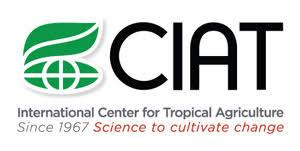
- Capacity Development
Project background
The DE-RISK project will develop climate risk management systems, best practices and insurance products that will shield smallholder farmers and businesses engaged in producing coffee, sugar, rice, cassava, rubber, dairy, and grazing across the agricultural value chain in key SE Asia countries from physical and financial disaster associated with climate change.
Climate change is threatening the livelihoods and food security of millions of poor smallholder farmers and agribusiness who depend on agriculture in the South East Asia region. Despite the fact that the El Nino/Southern Oscillation system has such a major impact in the region and the impacts of which will be exacerbated under climate change there is little application of seasonal climate forecasting in managing the associated risks in the agricultural sector. The ability to forecast extreme/unusual climate conditions months in advance is arguably one of the most potentially important developments in the environmental sciences of current times and this project aims at improving seasonal climate forecasting capabilities in Southeast Asia countries to better prepare smallholders farmers for future climate extremes and to increase climate resilience.
Expected outcomes
The project is structured around six key outputs:
- Identification of suitable seasonal forecast systems to assist farmer decision making.
- Participatory workshops and socio-economic surveys to explore climate change risks, adaptation challenges, enabling factors and barriers.
- Targeted seasonal climate forecasts to assist with climate change adaptation.
- Financial risk management tools, including index-based insurance products.
- Knowledge-driven national and regional adaptation and risk management strategies, and suitable incentive driven programs and measures.
- Developing a comprehensive Monitoring and Reporting of Adaptation and Improvement strategy system (MRAI).
It has two expected outcomes:
- Enhanced capacity of smallholders and agri-businesses to mitigate climate change. Smallholders/agricultural businesses develop enhanced climate risk management, adaptation capabilities and improved resilience due to climate change;
- National ministries develop and implement enhanced national adaptation and climate risk management plans to safeguard smallholders/agricultural businesses from physical/financial disaster associated with climate change.
- Region:
- Region II: Asia



